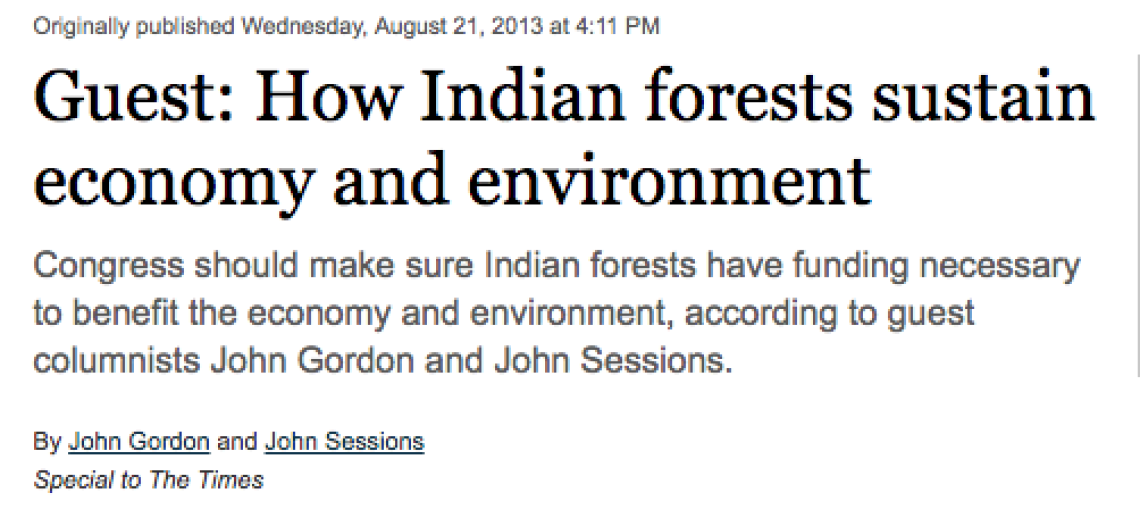Year
There are 18 million acres of forests and woodlands on 305 separate Indian reservations in 24 states in the continental United States. Nationwide, tribal forests support an estimated 19,000 jobs from timber harvest alone and many more from related activities.
Local off-reservation economies benefit from Indian forest and natural-resource activities and the jobs generate proportionate economic activity in local economies...
Additional Information
Resource Type
Citation
Gordon, John and John Sessions. "How Indian forests sustain economy and environment." The Seattle Times Company Network. August 21, 2013. Opinion.(http://old.seattletimes.com/html/opinion/2021660888_guestjohngordonjohn..., accessed August 23, 2013)

